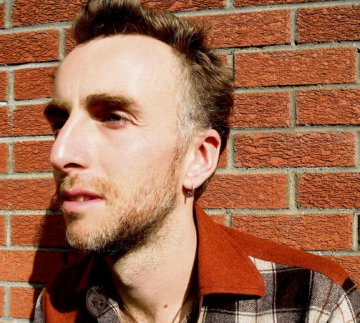Eoin Butler’s Q&A
Resource type: News
The Irish Times | [ View Original Source (opens in new window) ]
 SpunOut.ie’s Ruairí McKiernan talks about promoting positive mental health and booking the Dalai Lama
SpunOut.ie’s Ruairí McKiernan talks about promoting positive mental health and booking the Dalai Lama
Why did you start SpunOut.ie? It started in my bedroom in Ballyshannon, in rural south Donegal, in 2004. I’d been an activist with ambitions to change the world. But I became tired of being anti-everything. I thought, well, where does change come from? So I decided to set up an NGO (non-governmental organisation). I had noble ideas about helping people on a global scale. But that’s the great thing about being young and naive – you don’t see any of the barriers that might stand in your way.
Where does your funding come from? I originally applied for office space from local enterprise groups. But they’re all fixated on attracting multinationals. As a result SpunOut was based in Galway for eight years, before relocating to Temple Bar in Dublin this year. The HSE provides a lot of our funding. On the civic side, we get assistance from people like Atlantic Philanthropies.
What does the site do? We have a staff of seven. We provide hundreds of videos and thousands of factsheets, covering everything from skills, education and jobs, to alcoholism, mental health, self-harm and suicide. We provide young people with opportunities to discuss and debate issues and to connect with the help and services that are available. We also offer them small grants to help get their ideas off the ground.
The website is aimed at young people aged 16-25. How has this demographic been affected by the economic crash? There are 630,000 people in Ireland aged 16-25, so you can’t really tar them all with a broad brush. But the most obvious change in recent years is that the things young people could once take for granted – access to culture, opportunities for travel, graduate employment – are no longer a given. Ireland has one of the youngest populations in Europe and also one of the highest rates of youth unemployment and emigration. There is a sense that the future is bleak and that’s not a good place to be when you’re just starting out in life.
Are there any positives? At the end of the day, it’s up to young people to make thing happen for ourselves. We need to get organised, to make demands and not sit around waiting for someone else to do it. Even in this economy young people are being enterprising and entrepreneurial. There’s a great energy, a great DIY spirit – things like Seomra Spraoi and the Exchange in Dublin, for example – that I think need to be celebrated.
One of your more high-profile events was a Hugs For Health day. What was the point of that? Each year we hold an event with Google. They have a staff day which they donate to charity, so we usually do something fun and quirky.
On this occasion we had about 80 of their staff, plus some of our own people, giving out free hugs on Grafton Street to promote positive mental health. The idea ended up going viral when Ray D’Arcy encouraged workplaces around the country to get involved.
You know, I believe I may have almost punched one of your volunteers that day. Well, it is weird. Different people react different ways. Most are delighted. Others even become emotional and start crying. But if anyone doesn’t want to be hugged, there are ground rules.
You’re also behind an event entitled Possibilities, which is being held in CityWest this Wednesday. Possibilities is something we’ve organised in partnership with Afri and Children in Crossfire. It’s a gathering of people, young and old, who want to take a deeper look at where we are, culturally and politically, and where we’re going. Among those taking part will be the Dalai Lama, Mary Robinson, Kila and representatives of a huge line-up of theatre, poetry and community projects. Two thousand tickets went on sale and they’ve all sold out.
When the Dalai Lama makes a personal appearance, does he have a rider? Is there a particular colour of M&M he refuses to tolerate? No, there’s no rider. He doesn’t have any special requirements, except that the event must be organised on a not-for-profit basis. He doesn’t fly first class, he’s very low key.
He doesn’t have an entourage of freeloading high school buddies? Nothing like that? No, he only has bodyguards. He’s the leader of occupied Tibet, so obviously there are security concerns. He’s retiring from political life later this year. He’s 75. There aren’t too many world leaders choosing to retire voluntarily at the moment. So for me he’s someone with rare integrity and vision.
What about yourself? Could you see yourself ever deciding that you’re too old to run a youth organisation? That it’s time to hand over the reins to someone else? Absolutely, I’m 33. I’ve been in this game a long time. NGOs are funny old beasts. Some end up just existing for the sake of existing, fundraising just for the sake of staying in business. I’ve started to look at other projects and I may soon decide to move on. But we’ve embedded three or four young people on the board of SpunOut.ie. That means new people and new ideas. I’ve no intention of getting in their way.
Spunout.ie is an Atlantic grantee.